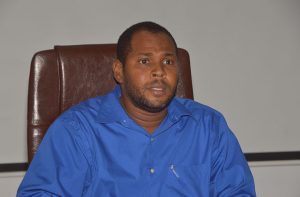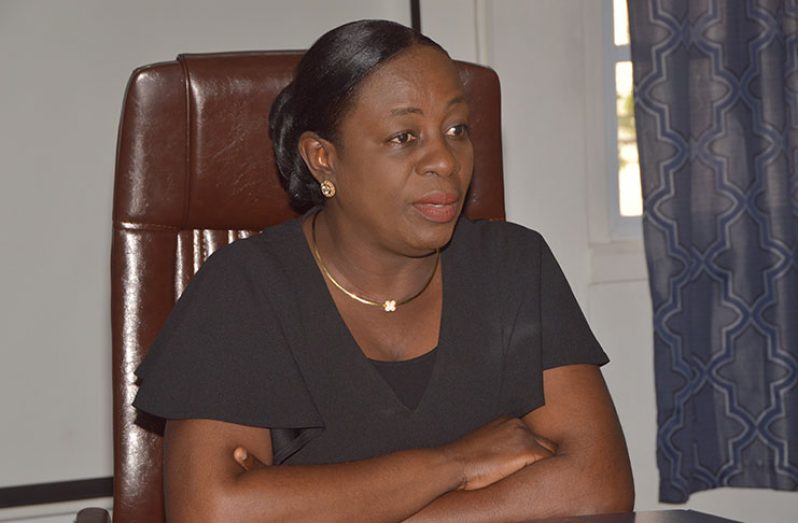THE Ministry of Education, on Monday, inked three consultancy contracts worth some G$45M for the improved provision of Technical and Vocational Education and Training (TVET) to students in Regions Three, Four and Five.
The initiative forms a part of the Guyana Skills Development and Employability Project (GSDEP) and will eventually see the rehabilitation and refurbishment of three Practical Instruction Centres (PICs).
These are located at Hope Town, West Coast Berbice; Beterverwagting, East Coast Demerara and Fellowship, West Bank Demerara.
The contract was signed between the Ministry and VIKAB Engineering Consultants Limited (VECL), a Trinidad and Tobago-based company which has worked with the government on over 100 schools already.

The project receives its funding from the Caribbean Development Bank (CDB) and the Government of Guyana.
It is aimed at enhancing access and improving the provision of TVET to secondary school children across the country.
“The government has recognised – as well as the Ministry of Education – the disparities that exist with technical education and education in general and this is another project to bridge that gap,” GSDEP Project Coordinator, Theron Sieba explained, adding:
“The scope of [VECL’s task] is really to prepare final designs; very detailed designs. The ministry prepared a very robust Terms of Reference after numerous consultations with different stakeholders. We already have a Design Review Committee on board and, apart from that; the consultant at each stage of the design has to do a presentation of design.”
The design phase will last for three months after which the tendering process will begin; later giving way for the construction phase expected to begin in July, 2019 and last for one year.
The project will also involve the training of 24 TVET teachers at the University of Guyana (UG) in various disciplines, while two others are to attend the Barbados Community College for training in Fine Arts and Graphic Design.
Soon students will be learning commercial food preparation; furniture making and garment design among many others.
“The idea behind it is that once you would have received the Caribbean Vocational Qualifications Level One training, it will help to make entrepreneurs out of persons. Too often persons come out [of school] and are seeking employment from the public sector and private sector, so the ministry is trying to strengthen capacity of these workshops in the TVET sector so that we can have more entrepreneurs out there,” Sieba said.
In her remarks, Education Minister Nicolette Henry said that while the project did not begin as soon as she would have hoped, it definitely marks a step in the right direction.

“This project is a very important project, not only for the Ministry of Education but for this country as a whole because it speaks not only to the issue of employability but also skills development, both of which are very important,” she said.
“This is a project I would have wanted to get off of the ground in 2018 but because of several technical glitches we are here now and I trust that the young people of this country will realty benefit from this project.”
Meanwhile, VECL’s Managing Director Hardutt Punwasee pledged that his company would put all efforts towards delivering in an expeditious manner and according to the quality expected by the ministry.
Other areas to receive improvements to their Practical Instruction Departments (PIDs) include St. Ignatius Secondary School in Region Nine; Bartica Secondary School in Region Seven; Mahdia Secondary School in Region Eight and the North West Secondary in Region One.



.jpg)









